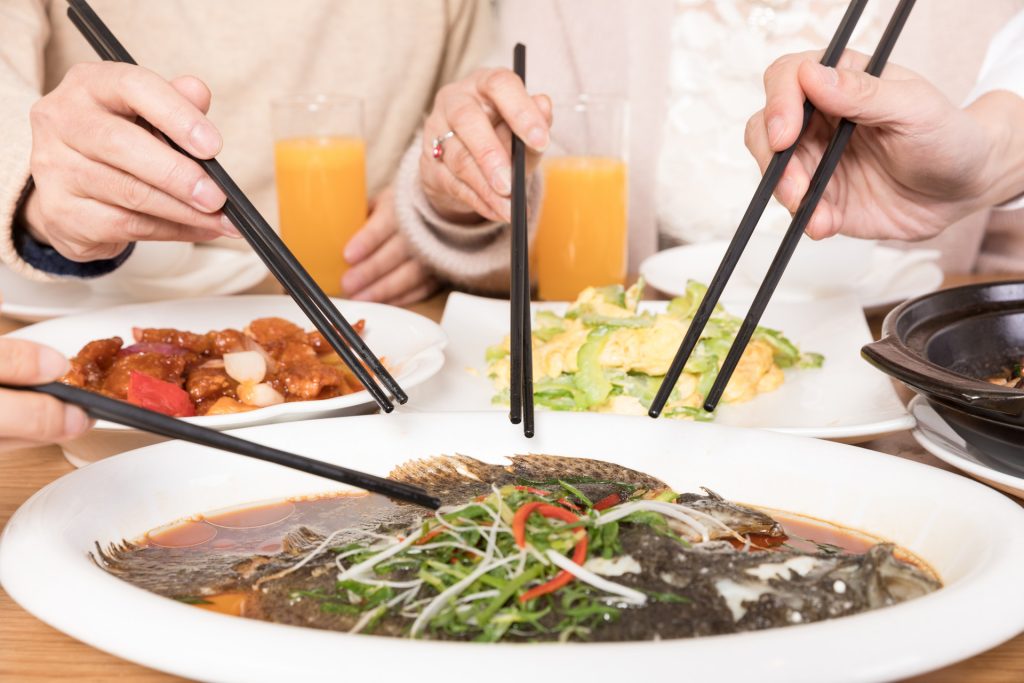Adapting to life in China as an international student can be both exciting and challenging. Here are some tips to help you navigate the cultural, social, and academic aspects of your experience:
- Learn Basic Chinese Phrases
- Research Your Location
- Connect with Locals and Other International Students
- Explore the Local Culture
- Understand Academic Expectations
- Be mindful of your dietary preferences
- Stay Informed
Adapting to life in China as an international student is a gradual process. Be open-minded, patient, and proactive in seeking support and opportunities for cultural exchange. Embrace the challenges as learning experiences, and don’t hesitate to ask for help when needed.
Learn Basic Chinese Phrases
Learning basic Chinese phrases can significantly enhance your experience as an international student in China. While many people in urban areas may speak English, having a basic understanding of Mandarin can make daily interactions smoother and help you connect with the local culture. Here are some essential Chinese phrases to get you started:
| Hello | 你好 (nǐ hǎo) |
| Goodbye | 再见 (zàijiàn) |
| Thank you | 谢谢 (xièxiè) |
| You’re welcome | 不客气 (bù kèqì) |
| Yes | 是的 (shì de) |
| No | 不是 (bù shì) / 不 (bù) |
| How are you? | 你好吗?(nǐ hǎo ma?) |
| I don’t understand | 我不懂 (wǒ bù dǒng) |
| How much is this? | 这个多少钱?(zhège duōshǎo qián?) |
| I want to go to… | 我想去… (wǒ xiǎng qù…) |
| Left / Right / Straight | 左转 / 右转 / 直走 (zuǒ zhuǎn / yòu zhuǎn / zhí zǒu) |
Remember, pronunciation is crucial in Mandarin Chinese, so don’t hesitate to ask locals or language exchange partners for help. Using these basic phrases will not only help you navigate daily life but also show your effort to engage with the local culture, which can be appreciated by the people you meet.
Research Your Location
- Familiarize yourself with the city or town where your university is located. Understand its size, climate, cultural attractions, and overall atmosphere.
- Research the cost of living in your chosen city. Consider accommodation, transportation, food, and other daily expenses.
- Learn about the local language and cultural norms. Understanding the cultural context will help you adapt more smoothly.
- Find information on public transportation options in the city. Learn about metro systems, buses, and other modes of transportation commonly used by locals.
- Identify the location of healthcare facilities, hospitals, and pharmacies in case you need medical assistance.
- Explore the local cuisine and be aware of any dietary differences. Knowing where to find grocery stores and markets is essential for your daily needs.
- Investigate potential networking opportunities in the city. This could include professional events, cultural exchanges, or community gatherings.
- Familiarize yourself with local laws and regulations, including visa requirements and any specific rules for international students.
- Check the weather conditions throughout the year. This information will help you prepare for different seasons and pack accordingly.
By thoroughly researching your university and location, you’ll be better prepared to navigate the academic, cultural, and practical aspects of your life as an international student in China.
Connect with Locals and Other International Students
Connecting with both locals and other international students is crucial for adapting to life in China. Building a social network will not only enhance your cultural experience but also provide valuable support during your time as an international student. Here are some tips on how to connect with locals and fellow international students:
- Participate in language exchange programs where you can meet local students interested in learning your language while helping you improve your Mandarin Chinese.
- Attend cultural events, festivals, and activities organized by the university or the local community. This is a great way to meet locals and learn more about Chinese culture.
- Explore and join clubs or societies that interest you. This could be related to your academic field, hobbies, or cultural exchange. Many universities have clubs specifically designed for international and local students to mingle.
- Engage in volunteer activities within the local community. This provides an opportunity to interact with locals, contribute positively, and make a difference.
- Join sports teams or fitness classes on campus or in the local community. Sports provide a universal language, and participating in group activities is an excellent way to make friends.

- Join local groups on social media platforms or apps where events, meetups, and gatherings are announced. Platforms like WeChat and local forums can be particularly useful.
- Consider enrolling in elective courses outside your major. This allows you to meet students with different backgrounds and interests.
- Attend orientation sessions specifically designed for international students. These events often provide opportunities to meet fellow international students and share experiences.
- Attend workshops or seminars organized for international students. These events often cover topics related to cultural adaptation, academic success, and building a social support network.
- Join group trips or excursions organized by the university or student groups. Traveling together creates bonding opportunities and allows you to explore new places with fellow students.
- Approachability is key. Smile, be open to conversations, and show genuine interest in others. Don’t hesitate to initiate conversations with both locals and fellow international students.
Remember that building connections takes time, so be patient and proactive in your efforts to connect with others. Embrace cultural differences, be respectful, and enjoy the diverse experiences that come with interacting with people from various backgrounds.
Explore Local Culture
Exploring the local culture in China is a fantastic way to enrich your experience as an international student. China has a rich history, diverse traditions, and vibrant contemporary culture. Here are some tips on how to immerse yourself in the local culture:
- China has numerous historical sites and landmarks. Explore places like the Forbidden City in Beijing, the Terracotta Army in Xi’an, or the West Lake in Hangzhou. These sites offer insights into China’s rich history and cultural heritage.
- Participate in traditional Chinese festivals, such as the Chinese New Year (Spring Festival), Mid-Autumn Festival, or Dragon Boat Festival. Attend local celebrations, parades, and events to experience the vibrant atmosphere.
- Chinese cuisine is diverse and delicious. Experiment with local dishes and street food. Don’t be afraid to try new things, and consider joining locals for meals to learn about dining customs.
- Attend performances of traditional Chinese arts, such as Peking opera, traditional music concerts, or martial arts demonstrations. Many cities have theaters or cultural centers where you can experience these art forms.
- Take a calligraphy or painting class to learn traditional Chinese art forms. This hands-on experience allows you to appreciate the artistic skills and cultural significance behind these practices.
- Explore local markets to get a glimpse of daily life. Traditional markets are not only great for shopping but also for observing local customs and interacting with vendors.
- Enroll in language classes that focus on local dialects or specific aspects of the Chinese language. This not only helps with communication but also deepens your understanding of linguistic nuances.
- Participate in cultural exchange programs that pair international students with local families or individuals. This provides an immersive experience and a chance to build cross-cultural friendships.
- Explore museums and art galleries that showcase China’s history and contemporary art scene. This can provide a broader perspective on the country’s cultural evolution.
Remember that cultural exploration is a continuous process, and your time in China offers a unique opportunity to learn, grow, and appreciate the rich tapestry of Chinese culture.
Understand Acedemic Expectations
Understanding academic expectations is crucial for adapting to life as an international student in China. The academic environment may have differences from what you’re accustomed to, so here are some key aspects to consider:
- Familiarize yourself with the grading system used in your university. Understand how grades are assigned and the corresponding GPA scale. Grading systems can vary, so be sure to grasp the criteria for different grade levels.
- Know the expectations for coursework, assignments, and assessments. Understand the balance between class participation, assignments, exams, and other evaluation methods.
- Be aware of attendance policies for your classes. Some universities in China may have strict attendance requirements, and attendance can be a factor in your final grades.
- Understand the expected behavior in classrooms. In Chinese universities, students often show respect to professors through attentive listening and respectful interactions.
- Understand how to communicate with professors. In China, there is a strong emphasis on respect for authority figures, including professors. Address them with proper titles and consider using formal language in written communication.
- Collaborative learning is often encouraged. Be prepared for group projects and assignments where teamwork and cooperation are essential.
- Familiarize yourself with the university’s policies on academic integrity and plagiarism. Understand what constitutes academic misconduct and the consequences for such actions.
- Be aware of the typical class structure, including the number of hours per week, the format of lectures and seminars, and any practical sessions or labs.
- Know the language of instruction for your program. While some programs are offered in English, others may be in Mandarin Chinese. Ensure that you are comfortable with the language of instruction and seek language support if needed.
- Professors often have designated office hours for student consultations. Take advantage of these opportunities to seek clarification on course material, assignments, or any concerns you may have.
- Understand the use of technology in the classroom. Some professors may encourage the use of laptops or tablets for note-taking, while others may prefer a more traditional approach.
- Identify key academic resources such as libraries, research centers, and online databases. Know how to access these resources for your studies.
- Develop effective time management skills. Balancing academic requirements, assignments, and personal activities is crucial for success.
- In some Chinese universities, class participation may be a significant factor in your overall grade. Be prepared to engage in discussions, ask questions, and contribute to the learning environment.
- Understand how feedback is provided on assignments and exams. This can vary, so know where to find feedback and how to use it for improvement.
- Take advantage of academic support services offered by the university. This may include tutoring, writing centers, and study groups.
- Be culturally sensitive in your interactions with professors and classmates. Understand the cultural expectations regarding communication styles and academic discussions.
- If you have any uncertainties about academic expectations, don’t hesitate to seek guidance from your professors, academic advisors, or fellow students. They can provide valuable insights and support.
By understanding these academic expectations and adapting to the academic culture in China, you’ll be better equipped to succeed in your studies and fully engage with your academic experience.
Be Mindful of Your Dietary Preferences
Being mindful of your dietary preferences is an important aspect of adapting to life in China as an international student. Chinese cuisine is diverse and can vary significantly from what you might be accustomed to in your home country. Here are some tips to help you navigate dietary preferences while living in China:
- Be open to trying local dishes. Chinese cuisine is rich and diverse, and exploring local foods can be a delightful experience. You might discover new favorites.

- Learn basic food-related phrases in Mandarin Chinese to help you communicate your dietary preferences. For example:
- 我不吃肉 (wǒ bù chī ròu) – I don’t eat meat.
- 我吃素 (wǒ chī sù) – I am a vegetarian.
- Clearly communicate your dietary restrictions or preferences when dining out. This is especially important in restaurants where English may not be widely spoken.
- Utilize translation apps to convert menu items into your preferred language.
- Seek out vegetarian or vegan restaurants that cater specifically to plant-based diets. Larger cities in China often have a growing number of these establishments.
- Familiarize yourself with local grocery stores and markets. This allows you to purchase ingredients and cook meals that align with your dietary preferences.
- Engage with locals to understand the local food scene. They can provide recommendations and insights into where to find options that suit your dietary needs.
- If you have food allergies or specific dietary restrictions, consider using food allergy cards in both English and Mandarin. These cards can be presented to restaurant staff to convey your dietary requirements.
- Familiarize yourself with common Chinese ingredients. Knowing what goes into traditional dishes can help you make informed choices when dining out or purchasing groceries.
Remember that adapting to local cuisine is part of the cultural experience. With a combination of openness, communication, and exploration, you can find ways to enjoy the diverse and delicious offerings of Chinese cuisine while being mindful of your dietary preferences.
Stay Informed
Staying informed is crucial for adapting to life in China as an international student. Being aware of local customs, news, regulations, and other important information can contribute to a smoother and more enjoyable experience. Here are some tips on how to stay informed:
- Stay updated on local news and events. This can be done through local news websites, or news apps. Understanding the local context will help you navigate various aspects of life in China.
- Subscribe to newsletters or news updates from your university. This is an excellent way to receive information about academic events, campus news, and important announcements.
- Stay in touch with university resources such as student services, international student offices, and academic advisors. These offices can provide valuable information and assistance.
- Join social media groups and forums relevant to your university or city. These platforms often share information about local events, services, and tips for international students.
- Follow official social media accounts or websites of local authorities. This includes municipal governments, transportation authorities, and other relevant agencies. They often share important updates and announcements.
- Keep abreast of visa regulations and any changes to immigration policies. Understanding the visa requirements and staying compliant is crucial for your stay in China.
- Save important emergency contacts in your phone. This includes local emergency numbers, contact information for your embassy or consulate, and university emergency services.
- Attend orientation programs organized by the university or local authorities. These programs often provide valuable information about safety, health services, and cultural adaptation.
By staying informed and actively seeking information, you’ll be better equipped to navigate the challenges and opportunities that come with living as an international student in China.


